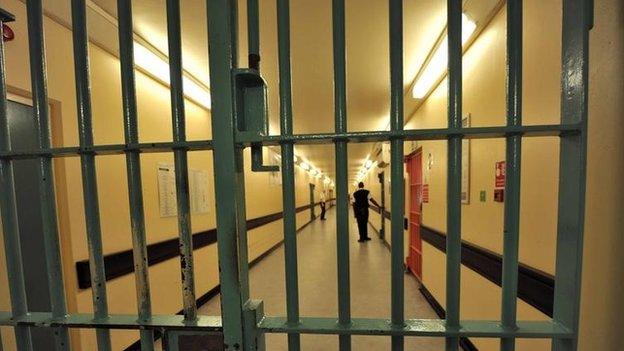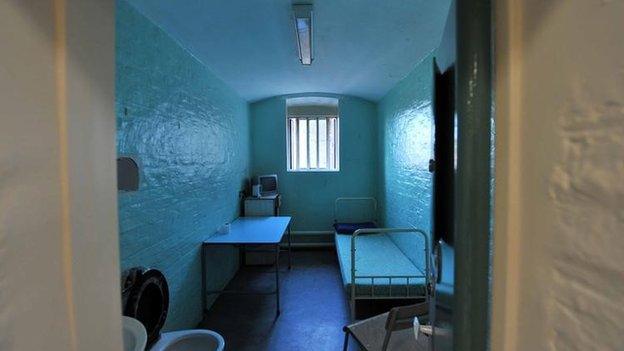Q&A: Probation reforms explained
- Published

The National Association of Probation Officers (NAPO) has threatened the MoJ with a judicial review
In June the government put into force plans to change the way the probation service runs, and forged ahead with proposals to privatise parts of it. But why are some people unhappy about this?

What is a probation officer?
Probation officers supervise ex-prisoners and those serving community sentences. Their job is to rehabilitate them, while at the same time, protecting the public.

What are the government's changes?
The changes dismantle the 35 probation trusts in England and Wales which were previously running the sector.
Instead they create 21 Community Rehabilitation Companies (CRCs), which are expected to supervise 200,000 low and medium-risk offenders each year.
Under the new system of 21 contracts, private companies, voluntary groups or charities, have to bid to win million-pound contracts to run the CRCs.
The government has also created a new public sector organisation known as the National Probation Service (NPS), which will be in charge of supervising and rehabilitating 31,000 high-risk offenders.
The changes were included in the Rehabilitation of Offenders Act which passed through the House of Commons and the House of Lords in 2013 and was given royal assent in March 2014.


Why have the changes been made?
Essentially the changes have been made in an attempt to deal with the causes of reoffending, and to try and bring down the reoffending rates.
More than 500,000 crimes are committed each year by people who have been convicted of a crime before, the Ministry of Justice (MoJ) says.
The National Audit Office has estimated that reoffending costs the economy between £9.5bn and £13bn each year.
The changes mean that more offenders on short custodial sentences will receive statutory supervision after their release.
Under the old system offenders serving less than 12 months in prison received no statutory support on release, and according to the Ministry of Justice (MoJ) they had the highest reoffending rates, with 57.5% reoffending within a year of walking free.

Why do some people oppose the plans?
The National Association of Probation Officers (Napo) say the changes place the public and probation staff at risk of serious harm from violent offenders.
This is in part because some probation staff - those working for CRCs - can no longer have full access to offenders' records to assess the risk they pose.
Napo fears this problem will continue with full privatisation because of the data protection laws and protocols around private companies accessing the databases of the National Probation Service (NPS).
The union say staff have spoken openly about risks to public safety with offenders not being supervised properly, continuing IT failures, staff shortages and ever increasing workloads.
The union - which has been on strike twice in the last 12 months over the issue - has taken legal action to try and stop the privatisation process, and is asking the courts to review the government's decision-making process in a judicial review.